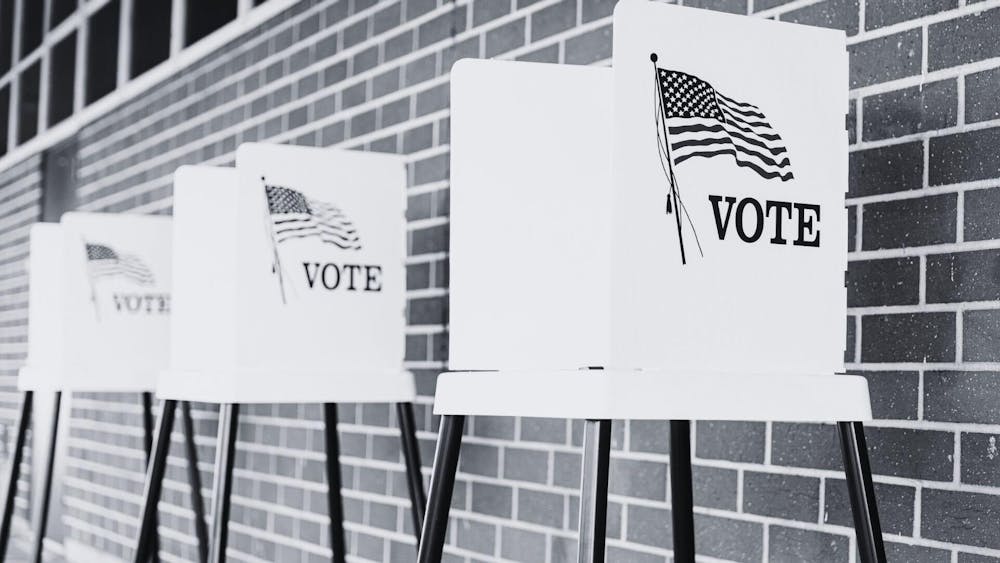Young people are disillusioned with the current political system in the U.S. I voted in my first federal election this past November, a rite of passage that should be filled with excitement.
Yet, I didn’t do so enthusiastically, and I’m not alone.
Across the country, young people are exhausted by business-as-usual politics. Underwhelming candidates don’t speak to the issues we care most about. We are frustrated with the influence money has on American politics and feel alienated from the messages politicians share.
It’s not just federal elections that reflect this sentiment. It’s local elections as well.
Frustration with the local political landscape is precisely what led Portlanders to vote to approve ballot measure 26-228 in 2022. The Portland Charter Review Commission proposed that the measure switch to an alternative voting process called ranked-choice voting (RCV) to elect the mayor, city auditor and 12 City Council members in four newly created geographic districts.
Instead of voting for a single person on your ballot, hoping your candidate wins over the business-backed, white-collar candidate you know has a higher likelihood of winning, you rank candidates in order of preference.
The “spoiler” effect, or the idea that you may be “wasting” your vote on a candidate, is why RCV empowers people to participate in our democracy: Your ballot is more powerful and worthwhile. If you don’t get your first choice, you’ll likely still elect a candidate you decently like rather than settling for a candidate.
We can see the effects of such power in this past fall’s Portland mayoral race.
In the past, a candidate like Rene Gonzalez would have undoubtedly been a top contender with endorsements from powerful voting blocs such as police unions and big businesses. He clinched an editorial endorsement from Oregon’s most influential newspaper, The Oregonian, and played on people’s fear about the ongoing homelessness crisis.
In response, a political action committee (PAC) of progressive organizations in Oregon created the “Don’t Rank Rene” campaign, encouraging voters to rank every candidate but him. They advocate for people to use their ballots strategically, which is made possible by RCV.
Successfully, voters were able to eliminate his chances in the mayoral race.
While more than 50 jurisdictions nationwide use RCV, Portland also made history by becoming the largest city to use it to elect its city council.
For the first time in Portland’s history, Portladers will be geographically represented and will have a more representative and diverse city council. At least five City Council members are people of color, six are women, three are renters and four identify as LGBTQ+.
Despite these results, people continue to doubt the new system. They have blamed RCV for “causing voter engagement to crater” and for confusing voters of color despite preliminary analysis showing voter turnout in 2024 being on par with other election years in Oregon.
Every time we experience change, our first instinct is cynicism. Dozens of cities, counties and states have held RCV elections. While Portlanders used it for the first time this year, the skepticism at the root of the critiques of RCV is demoralizing because it relies on fear-mongering rather than the success it’s delivered.
Oregonians had a chance to change how young people engage in politics and government by voting on Measure 117, which would have introduced ranked-choice voting for state and federal elections but was ultimately defeated by 57% of the opposing votes.
Despite these results, young voters are ready for change and for it to happen now.
Even here at UP, we have seen changes in our student election process that mirror a similar appeal: the need for more choice. We do not lose the opportunity to shape the future of Oregon politics for young people, and RCV could build the path to do so.
Kimberly Cortez is the Editor-in-Chief of The Beacon. They can be reached at cortez25@up.edu.
Have something to say about this? We’re dedicated to publishing a wide variety of viewpoints, and we’d like to hear from you. Voice your opinion in The Beacon.








